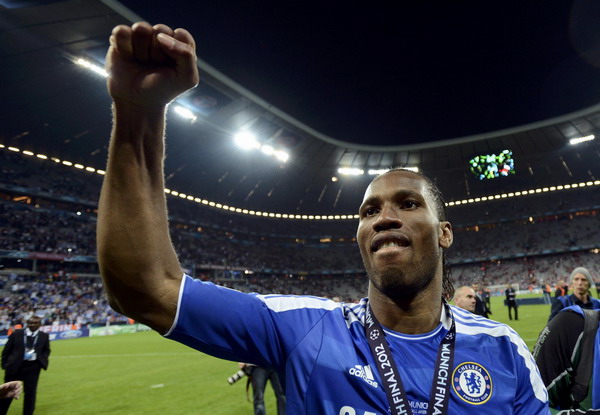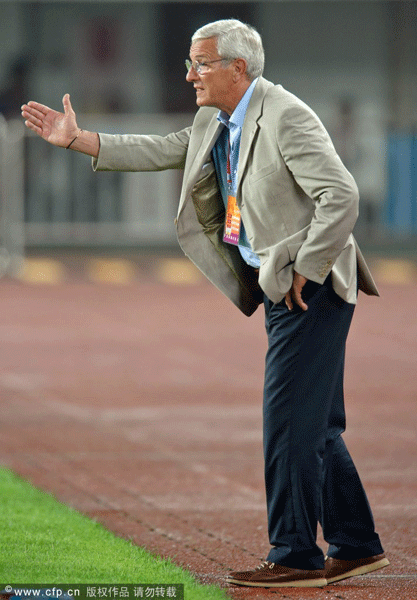CSL's big spending may not last
 0 Comment(s)
0 Comment(s) Print
Print E-mail Shanghai Daily, July 10, 2012
E-mail Shanghai Daily, July 10, 2012
With big name signings rolling in, Chinese soccer is basking in an unusually positive period, but experts have warned the galactico-style transfer policy is unsustainable and investment is being ploughed into the wrong areas.
Ivory Coast striker Didier Drogba is among the latest to move from the sport's traditional power bases in Europe. Drogba will line up in a Shanghai forward line already boasting former France international Nicolas Anelka, Colombian creative midfielder Giovanni Moreno and coached by former Argentine boss Sergio Batista.
 |
|
Drogba will lead Shanghai forward line with former France international Nicolas Anelka. |
League leader Guangzhou Evergrande, which is coached by former Italian World Cup winner Marcello Lippi, is led by creative midfielder Conca, the Argentine previously the best paid player in the league.
But there are fears about the long term future of such profligate spending.
"I think such a trend might probably last for two to three more years. Because this involves a lot of financial support to keep it going," says Lou Yichen, a soccer commentator in Shanghai.
"I feel such a situation cannot be sustainable in the long term because most football clubs in the Chinese Super League cannot keep up with such huge financial pressures."
Profitable
"As seen from the current situation in China, no football club can be operated on a profitable basis. The amount of financial investment put into a football club and the returns you gather from it is not even comparable. We always hope that Chinese football can fly high in a short period of time, and be able to catch up with our neighbors such as Japan and South Korea. But we do not know in what way or which road to take to achieve such a target."
China is currently 68th in the FIFA rankings behind Haiti, El Salvador and Sierra Leone, and has failed to qualify for the 2014 World Cup.
|
|
|
Marcello Lippi earns 10 million euros (about $13 million) per year at Evergrande. |
The huge investment on the likes of Drogba and Conca are expected to inspire a nation of young footballers and improve standards in the world's most populous country.
"In everything, there are benefits and there are problems. I think with such big-name signings, they will benefit Chinese football more than harming it," former Shanghai midfielder Fan Yun says. "If you look at Europe, they also have foreign imports and there is not much of a problem on them sidelining their local talent. (But) I feel more of the focus should still be on developing young talents."
But developing young players, building training academies and employing innovative coaches to succeed with the 2030 World Cup in mind is not in the interests of flamboyant businessmen and club owners who are keen to be photographed with their expensive soccer assets at every opportunity.
Lou says that despite Guangdong's heavy investment - it is one of the few clubs to pay transfer fees - enticing spectators has proved problematic.
"We know that they are one of the most successful real estate companies in the country. So in terms of their investment, they can put in a lot of money and are stable. But in terms of the operation of the football club as a business, till today they have not earned a single cent.
"There is even news from behind the scenes saying that Guangzhou Evergrande give away almost 10,000 free tickets for every match."
Without a self-sustaining model, fans rely on the rich club owners to maintain their interest and investment or China would be back to the lower echelons of Asian soccer again.







Go to Forum >>0 Comment(s)